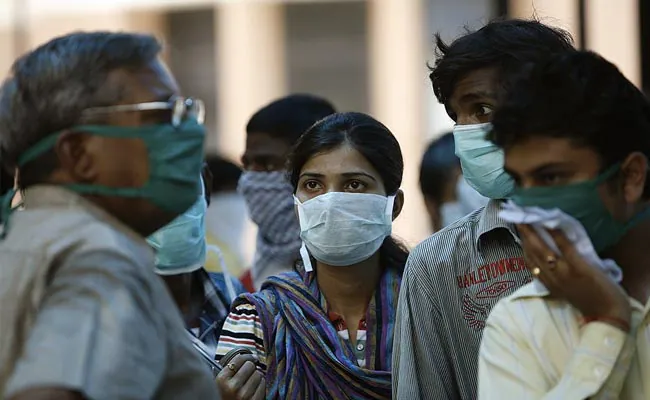.gif)
.gif)

Two people have died from H3N2 influenza in India, with around 90 reported cases of the virus and eight cases of H1N1 also detected. The Indian Medical Association (IMA) has cautioned against the use of antibiotics, saying that the infections are due to the H3N2 influenza virus, which lasts five to seven days and causes symptoms such as fever, cough, breathlessness and wheezing.
The IMA advised medical practitioners to give only symptomatic treatment as there is no need for antibiotics, and recommended that people avoid crowded places and practice good hand and respiratory hygiene practices, as well as getting a flu vaccination. The IMA also warned against taking antibiotics without proper medical advice, as this can lead to antibiotic resistance.
Notably, flu cases have been increasing in the country in recent days, and most of the infections are caused by the H3N2 virus, also known as the "Hong Kong flu". However, only H3N2 and H1N1 infections have been detected in India so far. Symptoms of these infections include fever, chills, cough, shortness of breath and wheezing. The H3N2 flu, which has been circulating widely for the past two to three months, is causing more hospitalizations than other subtypes, said ICMR researchers who closely monitor diseases caused by respiratory viruses.
Last week, the Indian Medical Association on Saturday warned against the use of antibiotics, saying the rising infections were caused by the H3N2 flu virus, which lasts five to seven days. "Sudden increase in the number of patients with symptoms of cough, nausea, vomiting, sore throat, fever, body aches and diarrhea in some cases," the IMA wrote on Twitter. "While the fever subsides at the end of three days, the cough may persist for three weeks," it added, advising doctors not to prescribe antibiotics to such patients.
The IMA further said that these cases usually occur in people over 50 and under 15. The IMA pointed out that people started taking antibiotics like Athreycin and Amoxiclav etc. without caring about the dose and frequency and stop when they start feeling better. They added that "this needs to be stopped as it leads to antibiotic resistance".
"Whenever antibiotics are actually used, they will not work because of resistance," the IMA wrote. The IMA issued an advisory and said people should avoid crowded places, follow some good hand and respiratory hygiene practices and also get a flu shot.